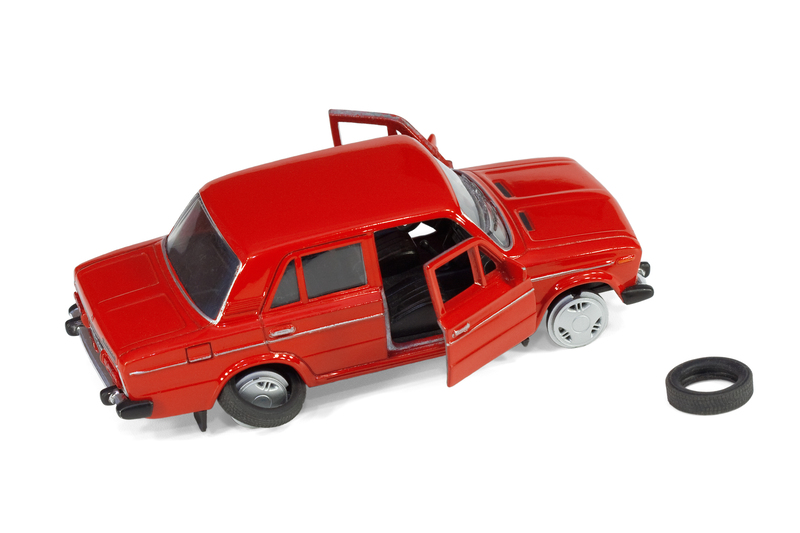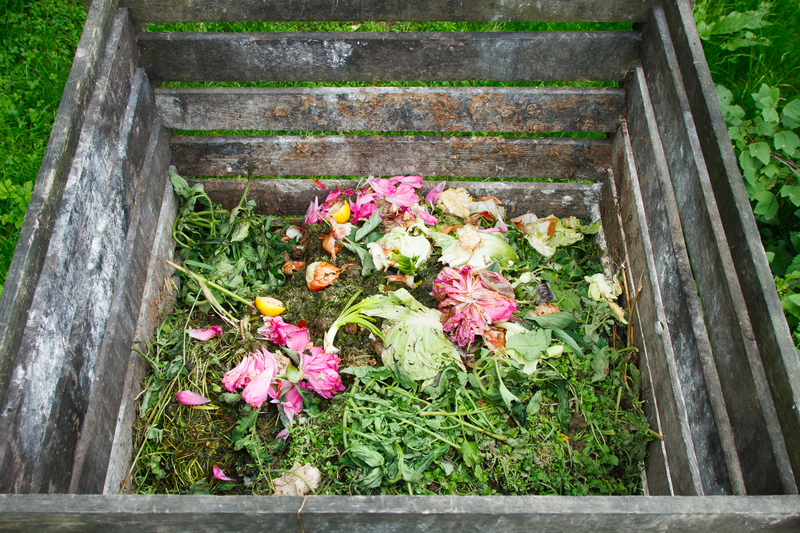Top Waste Prevention Practices Every Household Should Adopt
In today's fast-paced world, household waste management has become more critical than ever. With increased consumption and changing lifestyles, the environment is bearing the brunt of excessive waste generation. Fortunately, adopting effective waste prevention practices at home can greatly reduce our carbon footprint, conserve natural resources, and foster a healthier environment. In this comprehensive guide, we'll explore the top strategies for waste prevention in households, providing actionable tips and insights to empower every family to be part of the solution.
Table of Contents
- Understanding Waste Prevention
- The Core Principles of Household Waste Reduction
- Smart Shopping for Waste Prevention
- Minimizing Kitchen and Food Waste
- Maximizing Reuse in Your Home
- Recycling Right: What Every Home Needs to Know
- Choosing Sustainable, Eco-Friendly Household Products
- Engaging the Whole Family in Waste Prevention
- Long-term Benefits of Adopting Waste Prevention Practices
- Conclusion
Understanding Waste Prevention
Waste prevention, also known as source reduction, means stopping waste before it happens. It involves making conscious decisions and adopting daily habits that limit the amount and toxicity of waste produced. The goal isn't just to throw less away, but to rethink purchases, usage, and disposal, thus ensuring a more sustainable lifestyle.
Household waste prevention should be the first step before considering recycling or disposal. Not only does it reduce the burden on landfills, but it also saves money, energy, and valuable resources.
Main Types of Waste at Home
- Organic waste (food scraps, yard trimmings)
- Recyclable materials (paper, glass, plastic, metals)
- Hazardous waste (batteries, cleaning agents)
- Electronic waste (gadgets, appliances)
- General garbage (items not easily recycled or composted)
The Core Principles of Household Waste Reduction
To excel in waste prevention at home, start with the 3Rs--Reduce, Reuse, and Recycle. While all three are important, the first two are key for effective household waste management.
- Reduce: Make deliberate choices to cut down on what you buy and use.
- Reuse: Find ways to give items a second life before discarding them.
- Recycle: Properly sort and process recyclables to minimize landfill waste.
Smart Shopping for Waste Prevention
One of the easiest waste prevention practices for homes is mindful purchasing. Every time you head to the store, your choices impact the amount of waste your household generates.
Tips for Waste-Reducing Shopping
- Buy in bulk to minimize packaging waste and save money.
- Choose products with minimal or recyclable packaging--avoid single-use plastics and favor paper, glass, and metal containers.
- Carry reusable shopping bags, produce bags, and containers to cut down on disposable alternatives.
- Plan your meals and grocery lists to reduce food spoilage and unnecessary purchases.
- Avoid impulse buys and only purchase what you truly need.
- Select durable, long-lasting goods over cheaper items that will wear out quickly.
By practicing conscious consumption, you'll find that less waste enters your home in the first place--a vital step in effective home waste management.
Minimizing Kitchen and Food Waste
Food waste is a significant contributor to household trash. According to recent studies, nearly *one-third* of all food produced globally ends up as waste. Preventing food waste is not only eco-friendly, but it also helps you save on groceries and lowers overall household expenses.
Best Practices to Reduce Household Food Waste
- Create a meal plan and stick to a grocery list. Planning ahead ensures you buy only what you'll use.
- Use leftovers creatively by incorporating them into new recipes, such as soups, casseroles, or salads.
- Store food properly--learn the best ways to preserve produce, meats, and dairy to maximize their shelf life.
- Implement FIFO (First In, First Out) in your pantry and fridge: Use older products before newer ones.
- Compost organic waste to turn food scraps into nutrient-rich soil for your garden.
- Understand expiration dates--"best before" is not the same as "use by." Don't throw away food unnecessarily.
- Donate unused non-perishable goods to food banks instead of letting them expire at home.
By tackling food waste head-on, households can make substantial progress towards sustainable waste prevention.
Maximizing Reuse in Your Home
Reusing is a cornerstone of waste prevention strategies for households. It not only limits landfill waste but also saves money and resources.
Simple Ways to Incorporate Reuse
- Repurpose jars, containers, and bottles for storage, crafts, or household organization.
- Mend and repair items like clothing, appliances, and furniture instead of discarding them.
- Upcycle materials--turn old fabrics into rags or reusable shopping bags.
- Host a swap event to exchange goods (toys, books, clothing) with friends and family.
- Shop second-hand at thrift stores and online marketplaces for furniture, electronics, and more.
- Use cloth napkins and towels instead of disposable paper products.
With a creative mindset, many everyday items can be given a new lease of life, significantly cutting down household waste generation.
Recycling Right: What Every Home Needs to Know
While recycling is fundamental, it shouldn't be your only focus for waste management. Proper recycling ensures that materials re-enter the production cycle efficiently and don't end up contaminating landfills. Knowing what, how, and when to recycle is essential for every home.
Effective Household Recycling Tips
- Understand local recycling rules: Not all materials are accepted by every curbside recycling program. Double-check guidelines.
- Clean and dry recyclables before placing them in the bin. Contaminated items can spoil entire batches of recycling.
- Separate materials--some programs require sorting glass, paper, and plastics.
- Do not bag recyclables in plastic: Loose items are easier to process.
- Avoid "wishcycling": Don't toss unsure items in the recycling--when in doubt, check first.
- Drop off hard-to-recycle items (batteries, electronics, light bulbs) at special facilities.
Acquiring recycling know-how makes a big difference in your household waste reduction efforts.
Choosing Sustainable, Eco-Friendly Household Products
One of the best waste prevention practices for families is transitioning to eco-friendly alternatives across the household. These products are designed to minimize waste, lower toxicity, and support sustainable production cycles.
Recommended Eco-Friendly Household Switches
- Use biodegradable cleaning products instead of hazardous chemicals.
- Replace disposable items (razors, water bottles, straws) with reusable options.
- Opt for bamboo or recycled material toothbrushes and other personal care items.
- Switch to rechargeable batteries to eliminate the need for disposables.
- Choose energy-efficient appliances to decrease electronic waste over time.
- Invest in refillable containers for soaps, detergents, and other staples.
Small changes in product choices add up to substantial environmental benefits--including less waste going to landfill.
Engaging the Whole Family in Waste Prevention
Sustainable waste management succeeds when everyone in the household is on board. Encourage your family members, including children, to understand their vital role in waste prevention at home.
Fun Ways to Involve the Family
- Make waste separation a game--use colorful bins and scoreboards to track recycling and composting efforts.
- Assign weekly "green challenges" such as reducing single-use plastics or sticking to a zero-food-waste recipe menu.
- Start a family compost project and use the rich soil in your garden together.
- Educate children by involving them in sorting trash and understanding what happens to waste after pickup.
- Celebrate milestones like reduced waste bills or full recycling bins!
Involving all household members leads to lasting behavioral change and a stronger environmental ethic.
Long-term Benefits of Adopting Waste Prevention Practices
Adopting comprehensive household waste prevention practices brings broad, positive impacts:
- Cost Savings: Buying less and reusing more stretches your household budget further.
- Environmental Protection: Less waste means less pollution, reduced greenhouse gas emissions, and resource conservation.
- Healthier Living Spaces: Reducing hazardous materials and clutter creates a safer, cleaner home.
- Community Impact: Households that model effective waste reduction encourage neighborhoods and cities to follow suit.
- Educational Opportunity: Waste prevention habits foster eco-consciousness in children, shaping future generations.
Waste prevention is not simply about minimizing trash--it's a lifestyle that radiates benefits throughout your home, community, and the planet.
Conclusion
The journey toward a greener home begins with small, conscious steps. By implementing these top waste prevention practices every household should adopt, you're not only reducing your environmental footprint but also fostering a culture of sustainability that will stand the test of time. Whether it's saying no to excess packaging, making the most of leftovers, or teaching children the value of reusing goods, every action counts.
Let's commit to smarter consumption, creative reuse, and proper waste management to build a cleaner, healthier, and more sustainable future for all. Start your household's waste prevention journey today and inspire others to do the same!

